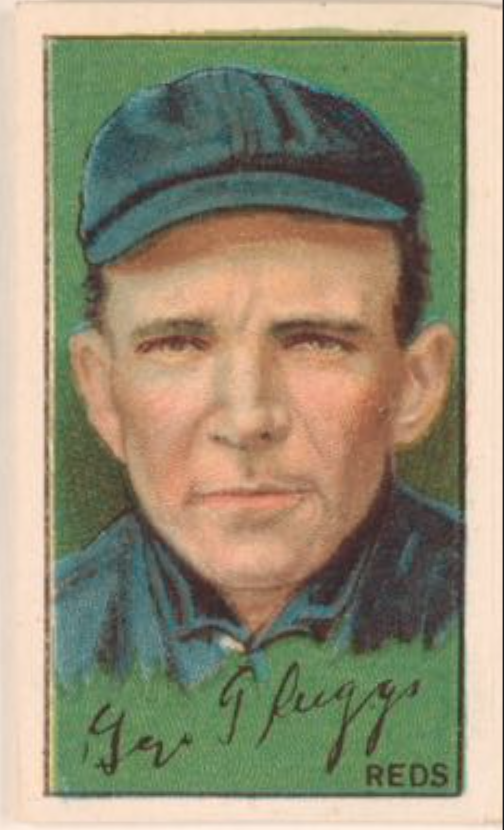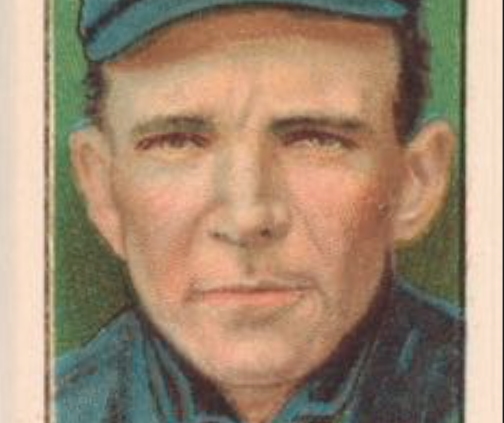October 6, 1914: Terrapins win blowout in Baltimore in doubleheader opener
 In the final week of the initial Federal League campaign, the Pittsburgh Rebels met the Baltimore Terrapins on the latter’s home field for a six-game series squeezed into three consecutive doubleheaders.
In the final week of the initial Federal League campaign, the Pittsburgh Rebels met the Baltimore Terrapins on the latter’s home field for a six-game series squeezed into three consecutive doubleheaders.
The Rebels had won six of their last eight games, including three out of four against the Indianapolis Hoosiers, who were neck-and-neck with Chicago in the FL pennant race. Pittsburgh had the advantage in the season series with Baltimore, having won 11 of the 18 contests thus far, but with a 61-81 record they sat in seventh place, a mere game and a half above cellar-dwelling St. Louis.
The Terrapins had enjoyed early success, spending nearly all of May and half of June in first place, before falling off the pace and eventually settling into the third spot in the standings as of mid-September. Entering the final week of the season, they had only the slightest chance of catching the frontrunners.
Both teams were helmed by playing managers. In March 1914, after four seasons as the St. Louis Cardinals’ center fielder, Ennis “Rebel” Oakes made the jump to the Feds, taking a $1,300 salary increase to sign with the Pittsburgh entry. Baltimore’s Otto Knabe had been a full-time second baseman for seven seasons with the Philadelphia Phillies. A light hitter, known for his scrappiness, he led the National League in sacrifices in four of his seasons with the Phils. Knabe had actually been offered the Pittsburgh managership in November 1913, but declined, and inked his three-year deal with the Terrapins in January 1914.
Oakes’s team took the opener of the Monday, October 5, twin bill by a score of 8-6, while the second contest went eight innings before darkness intervened and it was left a 1-1 tie.
For the first match on Tuesday the 6th, Knabe called on righty George Suggs. Suggs broke in with the American League Detroit Tigers, making 15 mound appearances for them in 1908 and 1909, then spent four seasons with the NL Cincinnati Reds, where he posted seasons of 20, 15, and 19 wins before tailing off to an 8-15 record in 1913. In his debut season with the Feds, he again reached the 20-win plateau; he had posted seven consecutive wins and held a 24-11 record coming into Tuesday’s game.1 His most recent appearance against the Rebels was a 2-1 extra-innings loss on September 1.
Making his 21st start of the year for Pittsburgh, was one Frederick Mitchell “Mysterious” Walker, the fifth man in the Rebs’ rotation. Walker’s nickname dated to a 1910 stint in the Pacific Coast League, when he introduced himself to the San Francisco Seals manager only as “Mysterious Mitchell,” stating, “All I want is a chance to pitch, and if I don’t make good, you owe me nothing.” A few early mound triumphs with the Seals increased the suspense about his identity and he played it up, ducking photographers, riding in closed cabs, and even wearing a mask at times (off the field, of course).2 He eventually came down to earth, on field and off, and hurled a smattering of games with three different AL and NL teams between 1910 and 1913. After hesitating for some months to jump leagues — partly on personal advice from nineteenth-century star and baseball evangelist Billy Sunday, who called the reserve clause “the life and health of the grand old game”3 — Walker signed with the Rebels in early April 1914.4
Pittsburgh posed an early threat, putting three men on base in the opening frame. The Rebels wound up stranding them all, however, and the game’s first runs did not come until the home half of the third. Fred Jacklitsch, the Terrapins’ 38-year-old journeyman catcher, got things rolling with a triple to center. Suggs then helped himself with a run-scoring single to right. Two batters later, Suggs took advantage of a bad throw by pitcher Walker to score the second run. A fly ball brought home a third run and catcher Skipper Roberts’ failure to handle the subsequent throw to the plate allowed another tally, making it a 4-0 game.
Walker and the Rebs fared no better in the Terrapins’ next at-bat. Manager Knabe stroked a one-out double to left, moved to third on a passed ball, and was singled home by Jacklitsch. Suggs reached on second baseman Jack Lewis’s error, and when Jack McCandless made his second straight single, the bases were loaded for Vern Duncan, who sent a fly to right. Jimmie Savage mishandled the ball, giving Duncan first base and allowing Jacklitsch to score Baltimore’s sixth run, but his peg to Lewis on the play caught McCandless out at second. A double steal and two more miscues by Lewis put the Terrapins in front 8-0 at the end of four.
The home team produced again in the fifth. After Enos Kirkpatrick singled, Jimmy Walsh’s attempted sacrifice bunt turned into a hit, and they were both pushed along by Knabe’s sacrifice.
Jacklitsch drove in both men with a single into center, his third consecutive hit.
The 11th and final Baltimore run came in the eighth on a combination of a single, two stolen bases, and a fly ball. Meanwhile, the Pittsburgh nine could do nothing with Suggs. According to C. Starr Matthews, he was “invincible” and when, in the top of the ninth, the Rebels finally notched a run, it was “largely a gift, the Baltimore pitcher merely lobbing the sphere up for the visitors to hit.”5 It was also alleged that Suggs was “using the famous emery ball,” and that he “pulled his little piece of rough stuff out and rubbed a ball right in front of Umpire [Monte] Cross.”6
In an hour and 55 minutes, the host club had dismantled its guests with 11 runs on 11 hits. Six Pittsburgh errors — four by Lewis — meant that only seven of the runs were earned. Still, it was not a good day for the “Mysterious” Rebel hurler, whose record fell to 3-16. Suggs improved to 25-11, the third highest win total among Fed pitchers in 1914.
Sources
In addition to the sources cited in the Notes, the author consulted Baseball-Reference.com,
Retrosheet.org, and Phil Williams’s BioProject biographies of Otto Knabe and Rebel Oakes.
Notes
1 According to Baseball-Reference.com, Suggs’ final 1914 won-loss record was 24-14. The Retrosheet.org box score for the first game on October 6, however, lists this as his 25th win, and the Retrosheet game log for the Baltimore Terrapins’ 1914 season gives his final record as 25-12, his 12th loss coming on the final day of the season, October 10.
2 Arkansas Gazette (Little Rock), December 7, 1913: 24.
3 Bridgeport (Connecticut) Evening Farmer, January 14, 1914: 9.
4 Columbia (South Carolina) Record, April 7, 1914: 12.
5 “Terrapins Win and Tie,” Baltimore Sun, October 7, 1914: 5.
6 “Rebels’ Sixth Place Chances Given Setback at Baltimore,” Pittsburgh Daily Post, October 7, 1914: 12.
Additional Stats
Baltimore Terrapins 11
Pittsburgh Rebels 1
Game 1, DH
Terrapin Park
Baltimore, MD
Box Score + PBP:
Corrections? Additions?
If you can help us improve this game story, contact us.


